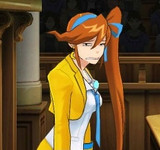I’ve been in “development hell” for 16 years, but I’m not complaining. While Hollywood has not yet made any of my books into a feature film, TV movie (known in the trade as an MOW, or Movie of the Week) or series, I still get paid for my writing being optioned. In fact, it forms part of my yearly income.
If you’ve ever wondered how something gets made into a film—and how your work can be tapped for one, too—here’s the inside scoop on options.
—Article by Fred Rosen
What exactly is an option?
A rental. A production company or studio reserves the right to make your work into a film, MOW or TV show for a specific length of time. In the past, the standard option was for a year, with two renewable one-year options. Taking advantage of the recent recession, producers have now been able to negotiate the first option to 18 months. Regardless, each time a company picks up the option, you get paid just for sitting on your tushie. In the meantime, they’ll try to secure the money to make the adaptation and get someone to write the script (though it probably won’t be you—Hollywood prefers to use its own writers to adapt work).
What can get optioned?
Just about anything. Published novels and nonfiction books. Magazine articles. Short stories. Unpublished work can break through, too, when someone who has a connection with a production company discovers something and passes it on (Frank Capra based It’s a Wonderful Life on an unpublished short story by Philip Van Doren Stern). But you should generally focus on getting published first—because the print imprimatur still demands the highest price when optioned.
How much is an option worth?
Options start at $500 and go up. In today’s market, $5,000 is excellent. It’s impossible to offer an average because it depends on so many factors, the most important being how much the production company wants the work. As my professor A.D. “Art” Murphy used to tell us, the movie business operates on the junkie/pusher principle: Someone has something that someone else desperately wants.
Do I need an agent to make the option sale?
Generally, yes. As you may know, there are both literary agents (who specialize in book publishing) and film agents. Many writers have both. If you have a literary agent, look at your contract and see if the agent gets points for a film sale; if so, encourage her to send your work to a film agent she’s familiar with (the two will split the commission). If you don’t have an agent, it’s fine to query film agents directly. They’re always looking for salable stuff to pitch to Hollywood. Be straightforward in your pitch: Briefly summarize the work to be optioned, where it’s published—or not—and your bio.
It’s also possible, though less common, to make a sale yourself and later obtain a film agent or lawyer to negotiate the details. You can find out what production companies buy—and get executives’ contact info—by going to their websites.
No matter how you do it, in the end, you’ll still be waiting for that fateful green light.
What’s the green light?
In the movie business, it’s the colossal step of money being put on the table to produce a project. Few options actually lead to a green light. Hollywood has so much money, producers can afford to buy a lot more than they need, and then cherry-pick their projects. That’s why you want to get as much as possible up front for the option itself. In the rare cases where you get a green light, you will get paid the purchase price. For now, think of it as Monopoly money. When you’re negotiating the option amount, the producer will dangle lots of zeros on the purchase price, while trying to keep the actual option figure at a minimum. (Good agents will fight this. And for their services, they’ll get 10 percent of the option and 10 percent of the purchase price. A lawyer will get 5 percent across the board.)
How much do you make if you get a green light?
The purchase price is usually 2–3 percent of the production’s budget, with a cap. So, at 2 percent, if a film is budgeted at $10 million, on the first day of principal photography you get a check for $200,000. If the cap is $225,000, that means even if the film is made for $50 million, your fee is still $225,000. For MOWs, a basic cable MOW is in the $25,000 range. Premium cable doubles that to $50,000. (If you luck into a series, you also get paid per episode.) Then again, like many writers, you could find yourself in development hell—the period when you’re waiting for the green light. But there are worse places you could be.
So what’s the key to getting your work optioned?
The first rule in the business is you need good product. And, on a psychological level, if you believe your writing is good enough to be optioned, people will pick up on your confidence. (On the flip side, they also pick up on your desperation—this from a writer who has been desperate on more than one occasion.)
All told, you have to have the innate belief that you are unique, and are offering something that no one else can. Frank Capra of It’s a Wonderful Life fame taught me that. I knew him; he was a friend. He once saved my writing life when I was ready to jump off that bridge.
Screenplays
Logline Service
I have been getting a lot of request for loglines. I give different prices . Since I have so many requests for this service, I decided to set a single fix price.
Logline: $5.00 Flat Fee
A synopsis or summery is required. It well be used to form the logline. The logline is just one line.
Logline: $5.00 Flat Fee
A synopsis or summery is required. It well be used to form the logline. The logline is just one line.
Screenplays
Critique: $50.00 Flat Fee,
Includes evaluating the basis elements of a script
- Introduction
- Development
- Climax
- Conclusion
- Character development
- Mid point development
Critiques also provide suggestions for improvements and enhancement.
Payments are made by Paypal or cashier check by mail.
Other services are at regular price.
Other services are at regular price.
Query Letters: $25.00 Flat Fee
Editing: $45.00 Flat Fee
- Evaluating formatting to industry standards
- Spelling, grammar, punctuation, sentence structure, etc.
Turnaround time:
Editing: 2 weeks
Critique: 2 weeks
Query Letters: 2 weeks
Feel free to contact me at ahicks4298@q.com or ahicks4298@msn.com.
Feel to call me at (360) 696-4298. Ask for Frances.
I also critique and edit books. I am currently organizing the service prices for working on books. If you are interested in me critiquing or editing a novel you have written, feel free contact me.
*
*
Film script format, writing film scripts, screenwriting services, coverage service, screenplay formatting margins, screenplay writing, screenplay format example, Search terms: screenplays, screenwriting service, edit and critique service, writing screenplays, screenplay format, loglines, query letter, film scripts, movie scripts, screenplay format, screenplay synopsis, script synopsis, treatment, proofreading service for writers, novels, writing services, fiction writing, film script format, writing flim scripts, screenwriting service, coverage service, screenplay critique service, screenplay format margins, screenplay writing, screenplay format example, free writing tutorials, script consultant, screenwriting jobs, film production companies







